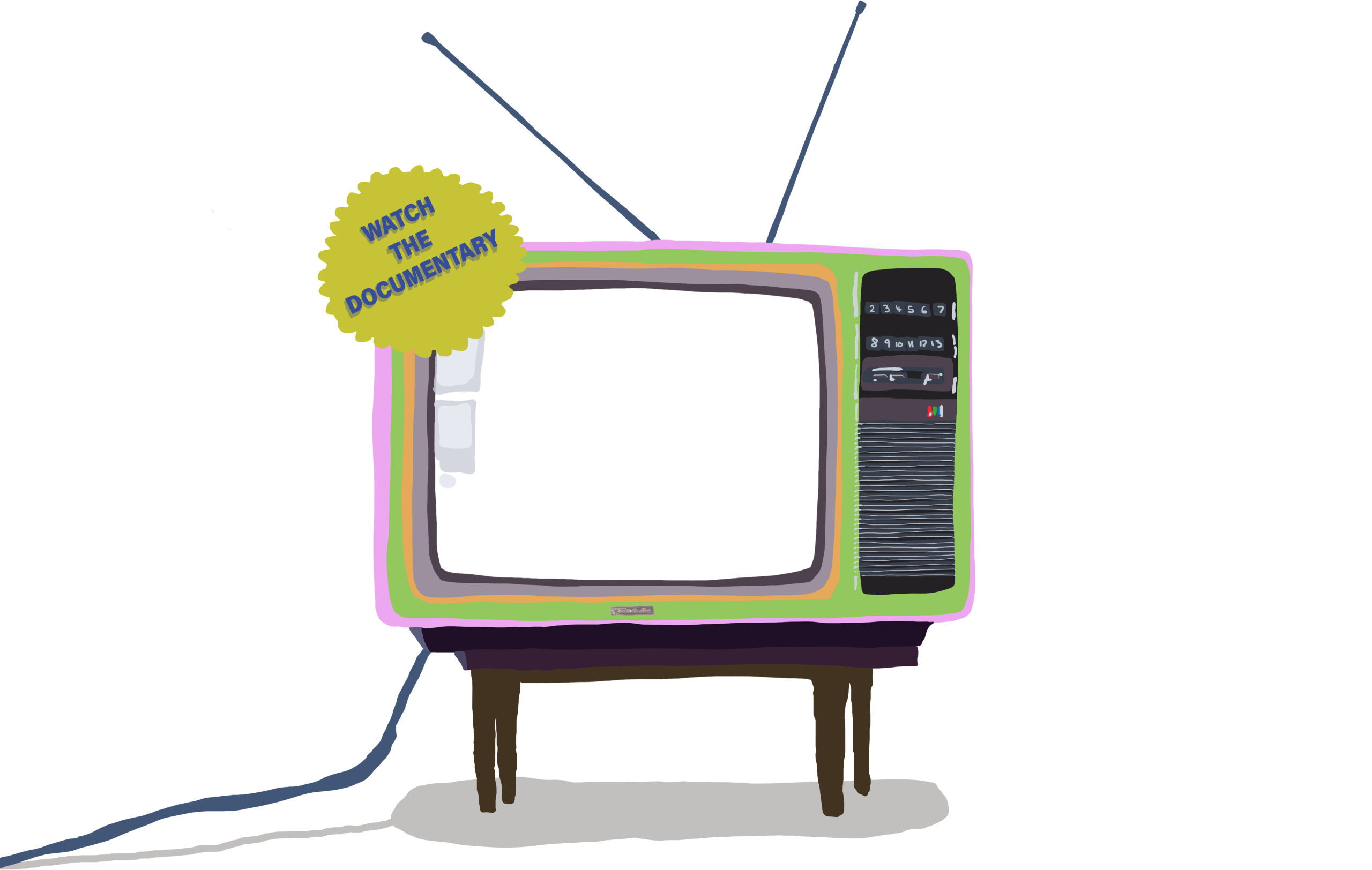




 t’s such a ridiculously innocuous, unobtrusive looking thing, this piece of plastic with a felt-like tip. Years later when you want them, those two blue lines will make you smile.
t’s such a ridiculously innocuous, unobtrusive looking thing, this piece of plastic with a felt-like tip. Years later when you want them, those two blue lines will make you smile.
But this is not then. This is too soon. Too terrifying.
I’m 21, fresh out of journalism school, starting my first job - a junior reporter in a radio newsroom in a small New Zealand town, still wearing my university op-shop clothes, earning less than $20,000 a year but eager, excited for what my career might hold.
Two unwelcome blue lines. They make me feel physically sick, more than I am already.
 ince I’m new in this town I don’t even have a GP, so I make an appointment at the local medical centre. The pregnancy is confirmed. I’m too scared to ask any questions, so I leave the doctor’s office and make my way to reception, my head cloudy, and ask the woman - what do I do now?
ince I’m new in this town I don’t even have a GP, so I make an appointment at the local medical centre. The pregnancy is confirmed. I’m too scared to ask any questions, so I leave the doctor’s office and make my way to reception, my head cloudy, and ask the woman - what do I do now?
“Just come back at 12 weeks.”
I know next to nothing about pregnancy but I do know 12 weeks is late for a termination.
“But I don’t want the baby.” I can hear the despair in my voice, I can feel the desperation on my face but she just looks at me, her own face all contempt.
She gives me the name of another doctor, though there’s something about the way she says his name that seems spiteful, somehow. She spits it at me, and soon I’ll realise I should have been suspicious.




 ith my painful swelling breasts and sick stomach, I know better than anyone that this is something real growing inside me. I acknowledge its potential. But I can’t go through with the pregnancy. I have my reasons. They are my reasons.
ith my painful swelling breasts and sick stomach, I know better than anyone that this is something real growing inside me. I acknowledge its potential. But I can’t go through with the pregnancy. I have my reasons. They are my reasons.
But what now? It’s a lonely place, this small, new town. I feel so utterly, overwhelmingly on my own.
I don’t want to tell my parents; I’m embarrassed and ashamed. I should have known better than this. I’m supposed to be smart.
I ring my eldest sister who’s living in the UK. She’s a counsellor and she’s good with these things and she’ll know what to do.
She’s reassuring but asks for time to think about it, ever responsible, my sister.
When she calls back she presents me with three options. Now, I can’t even remember the first two, but the third is to call mum. I know she’s right, but I feel such a failure.
I’ve just adopted a kitten and I have him on my lap for comfort when I make the call, the dial tone ringing between landlines across the North Island.
Part of me is hoping mum and dad don’t pick up, and make it even more real. But then I’m relieved when they do, because my fears melt away: my parents are sad for me and the situation I’m in, but they don’t judge me, they support my decision.
But what now?
Small town New Zealand in the early 1990s is not the place to be if you want an abortion. You simply can’t get one locally, and there is no abortion pill; it won’t be available for another 10 years. It has to be a surgical procedure, and that can only happen at a city hospital.
I learn that the law says I need two “certifying consultants” to approve the abortion; to sign it off under the terms set out in the Crimes Act. In my case, I need to argue a serious danger to my mental health.
And so I make an appointment with the doctor whose name that receptionist had given me: a certifying consultant.
I tell him I’m pregnant, but that I don’t want to continue with the pregnancy.
His manner is strange from the get-go. He doesn’t look me in the eye; he looks at his desk or off to the side of me as if I’m not really there.
And somehow, within two minutes of my arrival in this small, brown office in a provincial family medical centre, after briefly inquiring about my family medical history and without asking me why I want an abortion, he tells me I don’t meet the criteria. He won’t certify the abortion, because “this is not, and should not be, an abortion on demand society”.
It becomes clear why that receptionist sent me here.
I look at him, stunned and struggling to breathe. But some fight instinct kicks in.
I tell him he hasn’t asked me why I want an abortion.
And for the first time he looks at me - stares directly, accusingly into my eyes, and says, “Well, you tell me the situation then”.
I try, but it’s not good enough, and my consultation descends into a ridiculous, pointless, farcical exchange - a slanging match almost - each of us trying to convince the other they’re wrong. An uneven argument, an imbalance of power where he has vested in him the ability to alter the course of my life, and I’m in a corner, lashing back with whatever I can find.
I can’t find much.
He tells me I’m making a cold-minded, calculated decision. He refers to the foetus as ‘a person’, ‘a life’, and speaks of ‘spiritual continuity’. It’s obvious, but he admits his views stem from his religious beliefs.
He describes the (exaggerated, I later discover) size of the foetus and the (also exaggerated) risk to future pregnancies.
And, bizarrely, somehow our discussion gets onto the Domestic Purposes Benefit. Confusingly, given his position, he tells me it’s a waste of government money, that the woman shouldn’t have got herself pregnant in the first place, and anyway, her family should be there to support her.
For the second time, I leave a doctor’s office in tears, wondering what the hell I’m going to do.
 Abortions not provided under any circumstances
Abortions not provided under any circumstances
Source: Abortion Supervisory Committee and Law Commission
Source: Abortion Supervisory Committee and Law Commission




 iona, at the local Women’s Centre, becomes my lifeline. She not only gives me advice and practical support, she gathers me up and invites me into her home, for meals with her partner and children. Once at dinner she tells me you shouldn’t drink water at the same time you’re eating food, something to do with impeding digestion. That advice still comes to mind even now, and it makes me think of Fiona. I will never forget her kindnesses or her help.
iona, at the local Women’s Centre, becomes my lifeline. She not only gives me advice and practical support, she gathers me up and invites me into her home, for meals with her partner and children. Once at dinner she tells me you shouldn’t drink water at the same time you’re eating food, something to do with impeding digestion. That advice still comes to mind even now, and it makes me think of Fiona. I will never forget her kindnesses or her help.
The doctor Fiona finds tells me that whatever my decision is, it’s the right decision. I cry for a third time at a doctor’s office, this time with relief and profound appreciation.
He matter-of-factly explains the process of an abortion, and arranges counselling.
He organises for the abortion to be carried out in Auckland. My mother comes with me to the clinic. My sister loans me a comfy dress.
The doctor and nurses and counsellor are so kind, so very kind, so much nicer to me than that awful certifying consultant and that judgmental receptionist.
Afterwards, in the recovery room, with a dozen other women in blue gowns, each of us on a La-Z-Boy, I pass out. When I come to, my mum and I find a cheap motel for the night. We drive back to her and dad’s house the next day and there are flowers on the bench, for me, from the father.
I think - maybe unfairly - that he gets off lightly. Not that he’s been unsupportive, it just feels like the woman gets a really crap deal.

Source: Abortion Supervisory Committee/Stats NZ
Source: Abortion Supervisory Committee/Stats NZ



 might be young but I know the certifying consultant’s treatment of me was appalling; that it’s wrong he could be so fervently anti-abortion while having that power over women.
might be young but I know the certifying consultant’s treatment of me was appalling; that it’s wrong he could be so fervently anti-abortion while having that power over women.
So I write to the Medical Practitioners’ Disciplinary Committee to complain, and so does another woman who suffered the same treatment from the same doctor.
He writes to the Committee in response, and I’m sent a copy of his letter.
Reading what has been said about these two interviews, I can but agree that I was drawn into discussions which were not appropriate and which have obviously been taken in a way they were not intended.
I sincerely apologise to each of the women involved and assure them that this is not my normal manner. I feel that my being a certifying consultant was not a good decision and I have decided to stop.
I hope [the] women can accept my apologies and forgive me for what took place.
Yours faithfully
Dr A Milne.




But it’s a hollow apology, and a hollow victory.




 hat feels like a lifetime later, earlier this year I find him on Facebook. The face is older of course but unmistakably the same man. I sit at my desk just staring at that face for a while, feeling slightly rattled, though I’m not sure why.
hat feels like a lifetime later, earlier this year I find him on Facebook. The face is older of course but unmistakably the same man. I sit at my desk just staring at that face for a while, feeling slightly rattled, though I’m not sure why.
His profile tells me his work history: he’s no longer a doctor.
I scroll through, feeling like a stalker, noting he was relatively recently married. They look very happy.
I leave it for a week, then another week, and then another, unsure of the reason for my inertia. But finally I send him a message, a detailed one, (re)introducing myself, explaining what I’m doing - a story about abortion in light of the proposed law reform, and I ask tentatively whether he would consider being interviewed because I’m genuinely interested in his opinion: his feelings were pretty strong back then. Are they now? What does he think of law reform? What needs to be considered?
I expect no response.
But I get one.

It’s a thumbs-up emoji.
That’s it.
Which is odd and curious. What does it even mean? Surely it can’t be that easy? So I ask some further questions and it transpires that yes, he’s happy for me to interview him - as long as he can bring his wife.
We arrange a time and a place, in that same town where it had happened and where he still lives.
It’s my job to do interviews and I’m completely comfortable in that situation, but this one is different. It’s personal, and I’m about to come face to face with someone I had once loathed. I’m nervy and I pace and seek reassurance from my workmates.
The former doctor arrives on time, in shorts and a summer shirt, wearing a beautiful bone carving, his wife at his side. They’re chatty and friendly, though clearly apprehensive.
It’s a sweltering day and we’re under lights, both of us sweating, though more due to the tension than the heat. We have a rambling preamble conversation about the fingers now missing from his left hand, a workplace accident.
Strangely it comes almost as a relief that he still doesn’t look me in the eye. He looks off to the side of me, as if I’m not really there; the mannerism had offended me so much back then, but maybe it wasn’t personal - just a thing he does.
The camera starts rolling and he sits there, listening as I detail my complaint about him - I’ve kept the letter - and recount what happened in his office that day, all those years ago; that awful encounter that affected me so badly.
And for the next 45 minutes he answers my questions: openly, candidly, fully.
I’m conscious with his wife watching on that there are some difficult topics, some deeply uncomfortable moments. I can sense her presence and her disquiet.
But it’s not for the reasons I thought.
When the interview is over, she says, “I’m glad I heard all that”. And then, turning to him, “I’m glad you’re no longer a doctor”.
 drive down that road all the time now, the one with the clinic. Sometimes I look up at it, with its bland name, on the second floor of an ordinary building, sometimes I don’t. I prefer the days when I forget to, because the days I do, a heaviness hits me in the stomach.
drive down that road all the time now, the one with the clinic. Sometimes I look up at it, with its bland name, on the second floor of an ordinary building, sometimes I don’t. I prefer the days when I forget to, because the days I do, a heaviness hits me in the stomach.
I don’t regret my decision. It was right, for me, at that time. I sometimes do the maths on how old that child would be, but I don’t like to dwell on it.
I don’t regret my decision, but it will never leave me.

Share your stories with us at stuffcircuit@stuff.co.nz. Selected submissions may be featured on Stuff.



